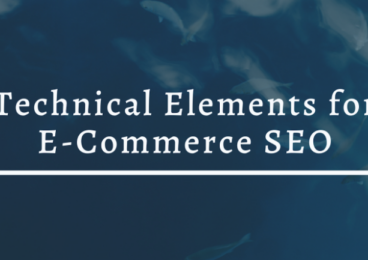 Reading Time: 5 minutes
Reading Time: 5 minutesWell, it is not at all a surprise that Microsoft/Bing hosts a Seattle event with rain in the forecast for the time that I’ll be here.
That said, Bing has been very gracious in their hospitality, and I really enjoyed last year’s event and I’m looking forward to what Bing has to share with us, today.
Represented in today’s summit are Group M, Havas, Universal-McCann, iProspect, ebay Enterprise, iCrossing, and a number of mid-tier agencies, such as Vizion Interactive. I believe a little over half of those in attendance are Bing employees, with total attendance of approximately 50.
Three goals of today’s summit:
1. Microsoft’s vision and Bing’s role in this vision.
- Bing Ads – made a significant investment; need to make sure the investment is relevant to us. How can we connect consumers to advertisers?
- Us – This is a bi-directional forum; they are seeking feedback.
Morning sessions: The Business of Search
Afternoon: The Product
First speaker: Rik van der Koi, leads the monetization team (CVP – ACM, Microsoft)
How Bing fits into Microsoft’s strategy
“The true scarce commodity is increasingly human attention”, Satya Nadella – CEO, Microsoft
How can we help people be more efficiency and make their lives easier and more productive?
Bing fits with this mission statement by helping folks to find things quickly, according to Rik. They want us to think of Bing as ubiquitous to everything.
The Evolution of Search – the evolution away from the SERP
The SERP, with all of its richness, is not going to disappear. However, sometimes the SERP is not the best way to interact with consumers (wearables, etc.)
As search becomes more proactive, Bing will evolve, too.
Algorithm – Historically, Bing wanted to make sure that they were better than Google in the “10 blue links”. They now know that this is not the right kind of metric. The right metric is to get the consumer the “one right answer”. The effectiveness of the “one right answer” has to come from the individual – what is the “one right answer to you”, based on the context of where you are, physically and otherwise.
They know they’re not alone in this quest.
Google just launched the inbox app.
But, Microsoft feels like they have the assets / touch points to make the experience unique. Cortana is their entry to this *NEED TO RESEARCH THIS*
Cortana monetization – not the same as how they have monetized the SERP today. Understanding people at scale.
The current structure of ranking organic and ranking ads is going to change. What about the spoken query? What does search look like when there is no screen at all?
It makes for an interesting future.
Q&A:
Andrew Goodman – “Someone might find a piece of content…lead generation/monetization of Bing – can you provide examples”? A: The example is not the pizza shoppe around the corner. Rik wants to underscore that they’re trying to understand the user and their modalities. What is unique about this one person? Bing needs to decide what is useful for “us”, the individual. How the marketplace evolves in the backend, will be interesting. It’s not just keywords. It’s intent. Active intents and latent intents. Lead gen will be one of these forms. What is the value of a click on a SERP vs the value of getting someone into (my) store.
Q: Smart Home – how does all of this fit into this?
A: It’s a huge funnel of data that’s coming in from many sources (important sources and gimmicky sources). What data do we not have access to? Google has their view on this, and we have ours’. The home intelligence system by itself means little. But, bringing this into a “big picture view”, it may mean something. Does it give you the opportunity to better understand the user? When you’re digitizing the world, it’s pretty tremendous. Which signals are useful vs just noise? We have many signals from the operating system and the computer, irrespective of the browser they’re using. Privacy – all of this should be done in privacy-compliant ways. Transparency – we require this with our marketing partners, and we believe the same holds true with consumers.
The value measurement of all of the data signals are a value within a certain context.
Q: What are the top 5 data points that you don’t have access to, which you’d like to?
A: We can’t be that transparent
Integration with Twitter/Facebook, and there’s more that they want to do. What about the integration of social signals into Bing?
A: Rik – we are just at the start of what search personalization looks like. Signed in versus not signed in – there are personalization signals that they incorporate. Rik argues that Google and Bing are still in their infancy in Personalization. This is clearly the quest as to where the future is.
Up next: Nishant Gupta – Principal Program Manager, Bing Ads
What is UET?
Universal Event Tracking – the evolution of goal/conversion tracking for Bing Ads.
It is the mechanism by which you enable remarketing for Bing Ads.
UET provides one tag across all campaigns and accounts (including Dissplay*). *Coming soon.
Advertiser Benefits:
- Simple to use; one tag
- Powerful – track any business objective (from click to page load level) with support for four different conversion goals)
- Enhances Insights – Provides information on assists and engagement metrics such as average duration per visit, bounce rate, etc. at a keyword level.
- Cross device – Track and attribute conversions across device, campaigns and accounts
- Audience based buying – The same tag will enable Remarketing scenarios such as bid boosting.
This provides the ability to place your tracking code on the site, once, and then set up multiple goals/conversion goals using the same tracking code. Will help with attribution tracking, as well. You will not only get information on conversions, but also user metrics such as time-on-site.
Available today: GA across all markets.
Remarketing Pilot – coming end of November/early December 2014
QA:
Q: Does UET replace what we already have there?
A: We will phase this in as a replacement. You will not be able to create new tags. Old tags will still work. Currently, you get a tracking code for everything that you want to track. But, since the things that you want to evaluate will change over time, you’re gonna run out. So, this is a much more long-lasting solution. We have taken steps to make sure that this is something that they can handle any future/further enhancements internally (it’s forward-compatible), so that we will not have to continue to update tags.
Q: MSID – what is this?
A: Anonymous ID that we associate with the same account. MSFT uses this to tie all things together (Outlook/Hotmail/Skype, etc.)
Follow up to above question – is this why Bing is launching so many apps?
A: This is clearly on the horizon.
Q: What about universal login?
A: Bing Ads didn’t start with MSFT logins, so that was/is an issue. The challenge is the broad eco-system. Waiting for the eco-system to catch up. Hopefully around early next year there will be a migration.
Q: Can we bring in offline conversions?
A: With the single tag, we hope to extend to include other forms of data. Not there yet, but it’s on the horizon/part of the plan.
Q: Where will Display ads appear?
A: Search Only
More to come, stay tuned!
At Vizion Interactive, we have the expertise, experience, and enthusiasm to get results and keep clients happy! Learn more about how our status as a Google Partner, along with our PPC Management, Google Shopping Ads, Social Media Advertising, Amazon Advertising, and other Paid Media services can increase sales and boost your ROI. But don’t just take our word for it, check out what our clients have to say, along with our case studies.




